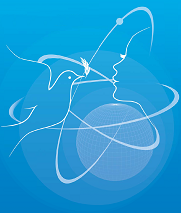Speaker
Vanessa Maree
(South Africa)
Description
As a country with a nuclear program, the Republic of South Africa (RSA) generates radioactive waste through numerous activities. Radioactive waste, for legal and regulatory purposes, is defined as ‘material that contains or is contaminated with radio-nuclides at concentrations or activities greater than clearance levels as established by the regulatory body and for which no use is foreseen’.
The RSA recognizes the importance of the safe management of spent fuel and radioactive waste, for this reason the country is a contracting party to the International Atomic Energy Agency (IAEA) Joint Convention on the Safety of Spent Nuclear Fuel Management and Safety of Radioactive Waste Management. South Africa fulfils its obligations under the Joint Convention by the establishment of a Radioactive Waste Management Policy and Strategy for the Republic of South Africa (Policy and Strategy). It lists the principles and provides direction relating to solid radioactive waste management. Although all key players i.e. government agencies and the private sector are participating to implement the national commitment in a coordinated and cooperative manner, huge uncertainty remains.
This poster presents the South African National Radioactive Waste Management Model with a description of
• the radioactive waste generated,
• the hierarchy of waste management options,
• the waste classification scheme adopted,
• the current disposal option,
• the current management of used (spent) fuel
Good intentions have not always been matched by action and measures are still needed to improve safety especially to integrate the lessons learnt from the Fukushima accident, management of legacy waste, monitoring of disused sealed sources, recovery of orphan sources and additional waste due to operation of potential new nuclear power plants etc. This poster also addresses current discussions and ideas relating to the above challenges.
| Country or International Organization | South Africa |
|---|
Primary author
Vanessa Maree
(South Africa)

